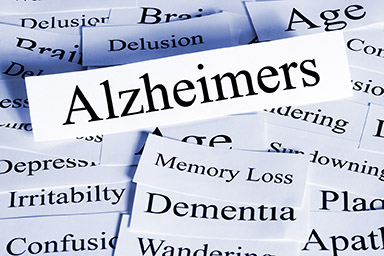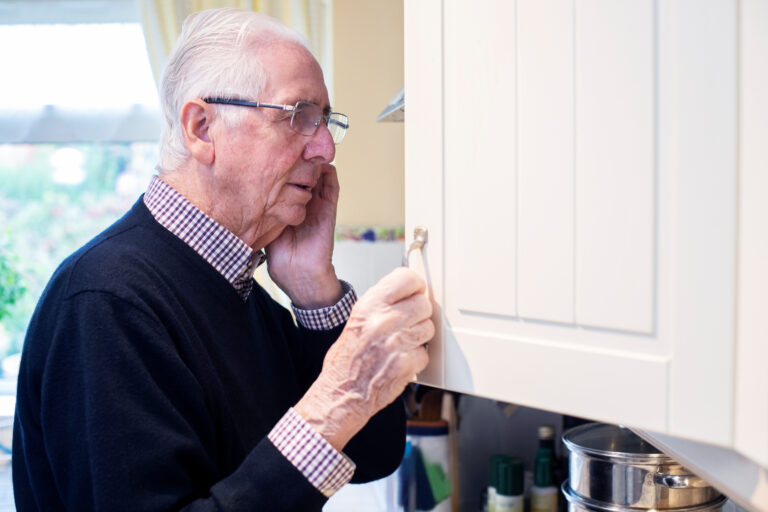Caring for a Loved One with Kidney Disease
When you first learn that someone you love has chronic kidney disease (CKD) or end-stage renal disease (ESRD), the emotional impact can be brutal. Kidney disease care can introduce unexpected emotional stress, and kidney failure treatments will mean tough decisions for you and your family.
The desire to care for a loved one is almost a reflex, but doing it can be intimidating, especially for first-time caregivers. On many days, it can feel like it’s burning you out. Yet many of the almost 786,000 people in the U.S. with ESRD choose home care.
But — caring for kidney disease in a loved one doesn’t have to fall entirely on you. In fact, it’s often far safer and manageable to enlist at least a little bit of help.
What Is Chronic Kidney Disease?
CKD is kidney damage that has reduced or completely stopped the kidneys from filtering toxins and waste material from your blood. Many of kidney disease’s more harmful effects happen due to a buildup of waste in your body over time from blood vessel damage from diabetes or high blood pressure.
Early Chronic Kidney Disease
In the beginning, your loved one may show no symptoms at all and remain completely unaffected by CKD. People with early-stage CKD can live a completely active and full life. It’s often possible for your loved one to start managing chronic kidney disease simply by changing what they eat and staying active.
Edema
Your loved one may begin to notice swelling of the legs, feet, and ankles as CKD progresses and the kidneys start to struggle to clear water and salt from the body.
Advanced CKD Symptoms
CKD develops in five stages. At stage 5 (kidney failure) caring for kidney disease becomes a full-time responsibility. As CKD gets worse, life will start to become less comfortable for your loved one. Their symptoms might include:
- Breathlessness
- Changes in urination frequency
- Chest pain
- Fatigue
- Headaches
- Itchy, numb, or dry skin
- Muscle cramps
- Nausea and vomiting
- Reduced appetite
- Sleep difficulties
- Trouble concentrating
- Unexpected weight loss
However, in the more advanced stages (and after kidney failure), the average life expectancy of a dialysis patient is 5-10 years. They may even live as long as 20 or 30 years with the right treatment.
Treatment for Kidney Failure
There are four main routes of treatment for kidney failure. All of them drastically impact daily function, require hours of care each day, and demand rigorous diet control. Each has pros and cons that depend on your loved one’s needs and wishes. Yet coping with dialysis and transplants is difficult, whatever they choose.
Hemodialysis
With hemodialysis, a machine cleans the blood outside the body. This can be administered at home or in a facility in about three weekly sessions that last 4 hours each. A doctor will first surgically install vascular access in the arm from which blood is drawn, cleaned, and returned.
Peritoneal Dialysis
This home-administered dialysis uses the stomach lining to clean the blood. First, a surgeon installs a permanent catheter tube into your belly. To start each session, you empty a solution into the catheter. You can then perform daily activities for a few hours before reconnecting to drain the solution (now filled with waste) into a separate bag.

Kidney Transplant
A surgeon may implant a donated kidney from a recently deceased or living donor. The original kidneys remain in place, but the new kidney takes over filtration from the damaged organs. After surgery, the immune system can reject the implanted organ, so the recipient will need to take medicines to suppress immunity for life. Caring for kidney disease patients after a transplant also involves providing companionship during periods of isolation, as they become more susceptible to infections.
Conservative Management
Some people choose not to receive treatment after kidney failure. Those with serious health problems may elect not to prolong life through dialysis or transplantation and may focus instead on maintaining their quality of life with medications during the time they have left. People with ESRD who don’t wish to receive dialysis may have weeks or months left to live and may want to consider end-of-life care.
How to Support Someone with CKD Emotionally
When someone finds out they have CKD, they become painfully aware of the stark choices they may face down the road. A fear of kidney failure and anxieties around the impact of its various treatments might constantly loom on the horizon, compounding the depression and stress that can develop for up to 50% of those with CKD, which is linked to high levels of the hormone creatinine.
As a primary caregiver, knowing how to take care of kidney disease patients in your family is also about providing emotional support.
Dealing with Fears About Kidney Failure and Treatment
Depending on how far along their CKD journey a patient is, dialysis or a kidney transplant may be an immediate or distant concern. Either way, you aren’t expected to be the source of all knowledge. Just lend a hand in connecting them with the right information.
Attend nephrology consultations with them, take notes, and connect them with others who live with the effects of all types of kidney failure treatment.
Helping Your Loved One Decide on Treatment
Choosing one kidney failure treatment over another changes an individual’s life in many ways. Each requires dietary changes, takes a toll on quality of life, and carries its own risks.
For example, a kidney transplant means your loved one may spend less time receiving dialysis. But a transplant may also make them particularly vulnerable to infections, because of medications they’ll take to suppress their immune system and prevent their body from rejecting their new organ.
Talk to your loved one about the things they most want to keep doing. They’ll need to make some sacrifices, but a sense of control during kidney disease care may help them feel more empowered.
Facilitate Transportation
Especially when pursuing dialysis treatment, regular and time-consuming medical visits may drain and frustrate your loved one. Bringing them to their sessions and picking them up may help them feel like someone else is sharing their burden.
What to Say to Someone on Dialysis
People on dialysis often experience depression and anxiety, which can worsen if they feel like they’re imposing on your life. Let them know you’re helping because you want to, and restate your availability to talk. Kidney care isn’t easy for you, but you’re there because you care.
CKD Support Groups Can Be a Lifeline
Both online and in-person support groups can help your loved one feel part of a community. NKF Peers provides a bridge between new patients and those who have experience with kidney transplants or weekly dialysis.
How to Help Someone with Kidney Failure Access Financial Support
Dialysis or a kidney transplant for kidney disease care can be financially imposing. However, Medicare coverage for kidney failure treatment is guaranteed, even for patients under the Medicare qualification age of 65 years.
Other options for financial support include:
- Private healthcare: Private healthcare plans can be purchased individually or administered as part of a group policy, such as through an employer.
- Joint federal-state programs: State and Federal governments collaborate on funding schemes like Medicaid and the Children’s Health Insurance Program that may cover some treatments not included with Medicare.
- TRICARE and other support for special populations: TRICARE offers coverage for active military personnel, while other options are available for veterans.
- Donor and Organ Recipient Support: The National Living Donor Assistance Program can help with travel and living costs if you’re looking to donate a kidney but struggling financially. Those seeking a new kidney can get information from the United Network for Organ Sharing.
Ask your loved one’s dialysis or transplant center staff about state kidney programs to check if your state offers this type of support.
How to Provide Dietary Support During Kidney Failure Treatment
When caring for kidney disease patients during treatment, controlling food intake becomes especially important. As your loved one’s primary carer, you’ll be responsible for making sure they limit the amount of waste that builds up in their system, especially if they’ve chosen dialysis treatment.
Speak to a Dietitian
Both types of dialysis require different levels of dietary restriction, and your dialysis center’s dietitian will create a special diet your loved one will need to follow to the letter.
Their kidneys will no longer be able to clear waste without dialysis, and even transplant recipients will need a special diet. Help your loved one by attending dietitian consultations, taking notes, and preparing delicious, healthy meals that help them stick to the plan.
Key Minerals
During kidney disease care, your loved one will need to consume less salt, potassium, and phosphorus.
- Salt: Using less salt during food prep and choosing lower-sodium foods can help your loved one control blood pressure and water weight between dialysis sessions. Switching to non-salt seasonings can retain flavor and enjoyment while cutting down sodium.
- Potassium: Kidney disease patients have a 2-3% higher risk of high potassium levels than the general population, so this mineral needs to be controlled.
- Phosphorus: A diet containing lots of phosphorus-rich foods can draw calcium away from the bones in those with ESRD, making them more likely to break.
Protein and Fluids
Your loved one should eat 8-10 ounces of protein every day to replace the proteins they’ll lose in the blood during dialysis.
It’s also important to make sure your loved one understands their doctor’s instructions about restricting fluid intake, as the kidneys can no longer balance fluid levels. Too much fluid can cause breathing problems and swelling.
Exercising with Kidney Disease
Providing kidney disease care is about helping your loved one stay engaged with their life, and exercise can help give them energy, build up strength, and improve mood and blood pressure. It also supports better sleep, blood fat levels, and body weight control in people with CKD.
Before your loved one starts any exercise program, make sure they speak to their doctor about:
- What types of exercise are safe
- How long they should exercise
- How hard they should work during exercise
- How regularly they should exercise
Support your loved one by joining in and making movement fun. Go on walks together or sign up for classes with them.
Supporting Your Loved One’s Kidney Disease Medication Schedule
During kidney disease care, your loved one may take several medications to control blood pressure, sugar, and cholesterol levels. As their main point of care, you’ll likely need to help them organize their medication schedule and make sure they stick to the regimen as precisely as possible.
You can set a series of alarms and reminders on your phone or use a medication reminder app and a pillbox to help them stay on top of which drugs to take and when.
Looking After Yourself While Providing Full-Time Kidney Disease Care
Caring for someone with kidney failure can have a deep impact on your own body, mind, and emotions. It’s important to be proactive in looking after yourself while you look after your loved one.
You can take several steps to relieve the pressure on you:
- Get help. Taking on the weight of a care plan singlehanded can leave you feeling burnt out with no time for your own needs. Family members, friends, and neighbors are often willing to help out with cooking, cleaning, and transport so you can tend to errands, heal a little, and maybe even get a little “you” time.
- Talk to other carers and professionals. You aren’t alone. People all over the U.S. provide full-time care for loved ones. They may be able to provide time-saving advice, practical support, or a shoulder to lean on in difficult moments. Facilities like NKF Cares also connect those caring for kidney disease patients with vital information, and a professional mental health counselor may help you access a judgment-free perspective.
- Practice wellness techniques. Shouldering someone else’s pain and depression during extended kidney disease care can hurt. Whether it’s yoga, meditation, tai chi, going for walks in nature, or taking a long, hot bath, take the time to administer meaningful self-care.
If serious complications like heart failure start to develop, you find that you’re struggling to cope, or you no longer have the time to fulfill your responsibilities as a carer, it might be time to consider booking home respite care professionals. They can cook, clean, administer medication, and keep your loved one company while you tend to your needs. There’s no shame in taking much-needed time for yourself.
Keeping Your Loved One’s Doctor Informed
While caring for kidney disease patients in your family, it might feel like the entire burden is on you. But your loved one’s medical team is the best port of call for adjusting treatments and addressing symptoms.
Before dialysis sessions or consultations, write down:
- Any questions you have based on observations between sessions
- The duration of mood swings, irritability, and depressed thoughts
- Vitals like blood pressure
- Other advanced symptoms and whether they’re getting better or worse
Planning for the Future: Palliative and Hospice Care
If dialysis is no longer helping your loved one feel better, symptoms are getting worse, or they’ve chosen to take the conservative management route, you may face a difficult decision with them about their final days. Palliative and hospice care can preserve your loved one’s dignity and comfort during their hardest times.
Palliative Care
A team of doctors, nurses, social workers, and mental health professionals manage symptoms and provide emotional support during isolated or painful periods.
Hospice Care
A specialist team provides end-of-life care that ensures maximum comfort and reassurance for your loved one. A spiritual advisor can also make sure their religious wishes and customs are respected.
Staying Strong Doesn’t Mean Doing It Alone
Your strength doesn’t come from cooking, cleaning, transporting, and caring for a loved one without a second of solo time. It’s in doing whatever helps your loved one feel comfortable and caring for yourself along the way. No pillar holds a roof up alone. Consider connecting with outside help if kidney disease care gets too overwhelming.
The Sage Family of Companies is here to answer any questions you may have.
Article Resources
- Choosing a treatment for kidney failure. (2018).
- Chronic kidney disease and its relationship with mental health: Allostatic load perspective for integrated care. Journal of Personalized Medicine. (2021).
- Chronic kidney disease basics. (2022).
- Diabetes and chronic kidney disease. (2016).
- Dialysis. (n.d).
- Diet and transplantation. (n.d.).
- Dietary guidelines for adults starting on hemodialysis. (2019).
- Facts about high potassium in patients with kidney disease. (n.d.).
- Financial help for treatment of kidney failure. (2020).
- Fluid overload in a dialysis patient. (n.d.).
- Heart disease & kidney disease. (2016).
- Kidney disease statistics for the United States. (2021).
- Kidney failure risk factor: Estimated Glomerular Filtration Rate (eGFR). (n.d).
- Managing chronic kidney disease. (2016).
- Nutrition and peritoneal dialysis. (2019).
- Staying fit with kidney disease. (n.d.).
- What is chronic kidney disease? (2017).






